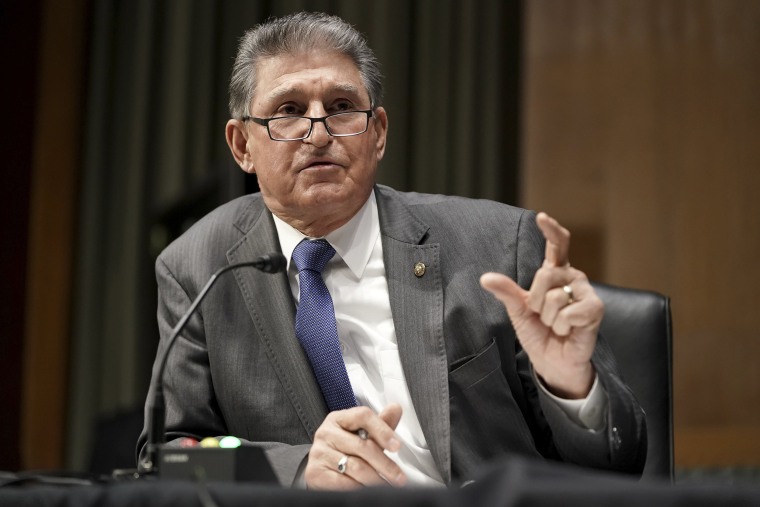As things stand, the Democrats' COVID relief package includes a popular provision: the first increase to the federal minimum wage in over a decade. The plan, reflecting a proposal endorsed by President Joe Biden, would raise the federal floor to $15 per hour, to be phased in gradually between now and 2025.
There are two major hurdles standing in the way. The first is procedural: Democrats are trying to pass the COVID relief package through the budget reconciliation process, which is only supposed to be used on legislation related to taxes and spending. Does changing the minimum wage -- paid by private employers -- fall into this category? As NBC News reported, we're about to find out.
The Senate Parliamentarian, who officially advises the Senate on Senate rules, could determine as early as Tuesday if a minimum wage hike could be included in the Covid-19 bill, according to a senior Democratic aide.... If the parliamentarian, Elizabeth MacDonough, rules that a minimum wage measure can be included in the budget package, Democrats would just need 50 votes with Vice President Harris casting the tie-breaking vote.
Senate Budget Committee Chairman Bernie Sanders (I-Vt.) has worked diligently to lay the groundwork for a positive ruling from the parliamentarian, getting the Congressional Budget Office to agree that a minimum-wage hike would have a significant budget impact. Indeed, at Sanders' urging, the CBO specifically found that raising the minimum wage would have a greater budgetary impact than other proposals that were passed through reconciliation.
I won't pretend to know what the Senate parliamentarian will do. If she balks, the provision will be stripped from the bill, and Democrats will have to explore alternatives to getting this done.
But if the parliamentarian agrees that the provision is eligible under the reconciliation process -- in the parlance, if it survives its "Byrd Bath" -- that will only clear the first of two hurdles. The second has nothing to do with procedure and everything to do with the wishes of conservative Democrats.
Sen. Kyrsten Sinema (D-Ariz.) has already said she's categorically opposed to including a $15-per-hour increase to the minimum wage. Sen. Joe Manchin (D-W.Va.) has said the same thing, though he voiced support yesterday for a smaller increase. The conservative Washington Times reported:
Sen. Joe Manchin III of West Virginia said Monday he would support increasing the federal minimum wage to $11 per hour as part of President Biden's $1.9 trillion coronavirus relief package — if Senate rules allow it. "Eleven dollars is the right place to be," Mr. Manchin said. "I'd amend it to 11, if it's germane."
In other words, if the Senate parliamentarian opens the door to the bill including any kind of wage increase, Manchin is prepared to accept $11 per hour, not $15 per hour.
At that point, Democrats will be left with a few options:
- Accept Manchin's terms and agree to a smaller minimum-wage increase
- Somehow persuade Manchin to change his mind
- Fail to increase the wage altogether and try again some other time
Again, if the parliamentarian balks, it's a moot point. But if not, would Democrats grudgingly tolerate an increase to $11 per hour?
Rep. Mondaire Jones (D-N.Y.) described Manchin's target as "unacceptable," adding, "One person should not be allowed to hold relief hostage."
Maybe not, but in a 50-50 Senate, with zero Republicans interested in governing on the issue, the legislative arithmetic is stubborn, and Manchin's vote is necessary.
Postscript: Sens. Tom Cotton (R-Ark.) and Mitt Romney (R-Utah) formally unveiled a proposal this morning that would raise the federal minimum wage to $10 per hour, phased in over the next four years. But they're also demanding a tradeoff: in exchange for the increase, the GOP senators are demanding new measures that would prevent American employers from hiring undocumented immigrants.
It's difficult to imagine Democrats taking the offer seriously.

